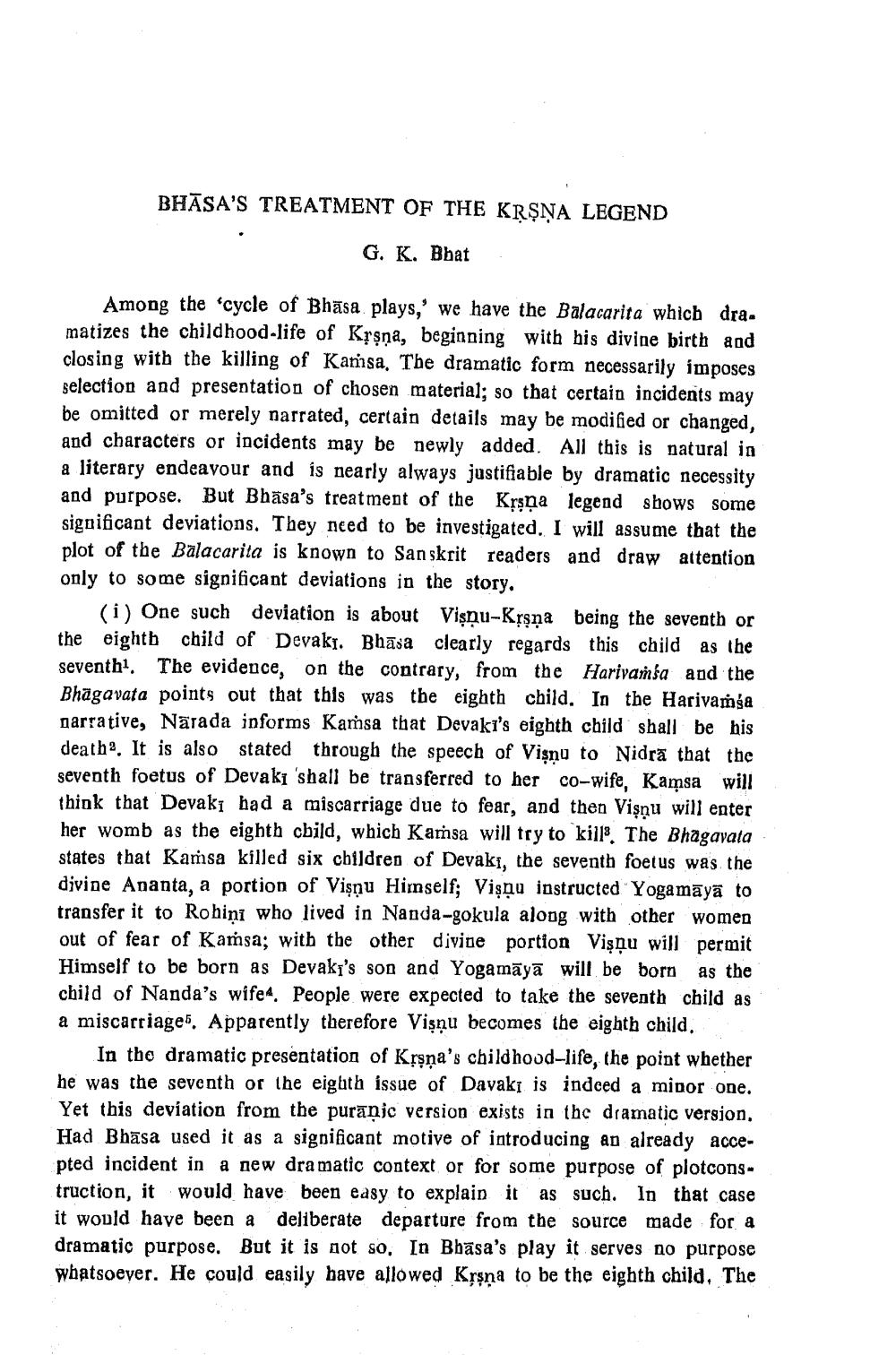________________
BHĀSA'S TREATMENT OF THE KRŞŅA LEGEND
G. K. Bhat
Among the 'cycle of Bhāsa plays,' we have the Balacarita which dra. matizes the childhood-life of Krsna, beginning with his divine birth and closing with the killing of Kansa, The dramatic form necessarily imposes selection and presentation of chosen material; so that certain incidents may be omitted or merely narrated, certain details may be modified or changed, and characters or incidents may be newly added. All this is natural in a literary endeavour and is nearly always justifiable by dramatic necessity and purpose. But Bhāsa's treatment of the Krsna legend shows some significant deviations. They need to be investigated. I will assume that the plot of the Balacarita is known to Sanskrit readers and draw attention only to some significant deviations in the story.
(i) One such deviation is about Vişnu-Krşņa being the seventh or the eighth child of Devakı. Bhāsa clearly regards this child as the seventh. The evidence, on the contrary, from the Harivamsa and the Bhagavata points out that this was the eighth child. In the Harivamga narrative, Nārada informs Kamsa that Devaki's eighth child shall be his death. It is also stated through the speech of Vişnu to Nidra that the seventh foetus of Devaki 'shall be transferred to her co-wife, Kamsa will think that Devaki had a miscarriage due to fear, and then Vişņu will enter her womb as the eighth child, which Kamsa will try to kills. The Bhagavata states that Kansa killed six children of Devaki, the seventh foetus was the divine Ananta, a portion of Vişnu Himself; Vişnu instructed Yogamāyā to transfer it to Rohini who lived in Nanda-gokula along with other women out of fear of Kaṁsa; with the other divine portion Vişņu will permit Himself to be born as Devaki's son and Yogamāyā will be born as the child of Nanda's wife4. People were expected to take the seventh child as a miscarriage. Apparently therefore Visnu becomes the eighth child.
In the dramatic presentation of Kịşņa’s childhood-life, the point whether he was the seventh or the eighth issue of Davakı is indeed a minor one. Yet this deviation from the puranic version exists in the dramatic version, Had Bhasa used it as a significant motive of introducing an already accepted incident in a new dramatic context or for some purpose of plotconstruction, it would have been easy to explain it as such. In that case it would have been a deliberate departure from the source made for a dramatic purpose. But it is not so, In Bbāsa's play it serves no purpose whatsoever. He could easily have allowed Krşņa to be the eighth child. The




